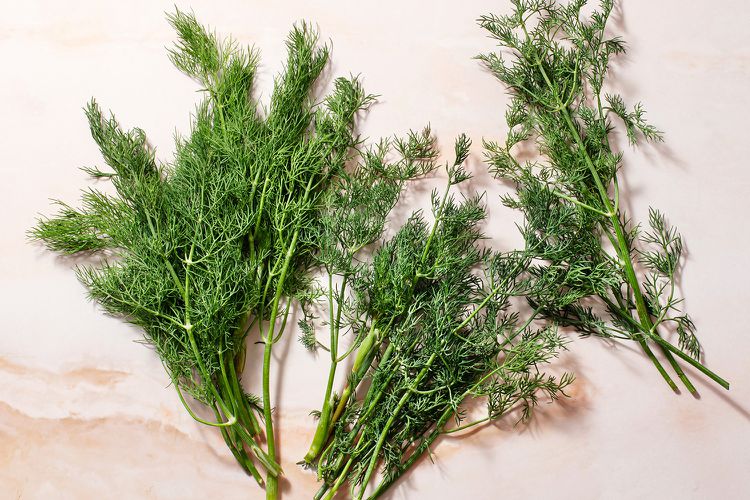Health Benefits of Dill
What are the health benefits of dill?
Dill is an herb that not only adds flavor to dishes but also offers several health benefits. Here are some key benefits of including dill in your diet:
- Rich in Nutrients: Dill is a good source of vitamins and minerals, including vitamin C, vitamin A, manganese, and iron. It also contains small amounts of calcium, magnesium, and potassium.
- Digestive Health: Dill has been traditionally used to aid digestion. It may help reduce gas, bloating, and indigestion, and it can stimulate the appetite and aid in the digestion of fats.
- Anti-inflammatory Properties: Dill contains compounds that have anti-inflammatory properties, which may help reduce inflammation in the body and lower the risk of chronic diseases such as heart disease and arthritis.
- Antioxidant Benefits: Dill is rich in antioxidants, such as flavonoids and polyphenols, which help protect cells from damage caused by free radicals. Antioxidants may also reduce the risk of chronic diseases and slow down the aging process.
- Diuretic Properties: Dill has diuretic properties, which means it may help increase urine production and promote the elimination of excess fluids and waste from the body. This can help reduce bloating and water retention.
- Antimicrobial Effects: Dill has antimicrobial properties, which may help inhibit the growth of harmful bacteria and fungi. It may be particularly beneficial for oral health, as it can help reduce bacteria that cause bad breath and dental issues.
- Menstrual Relief: Dill has been used traditionally to help relieve menstrual cramps and symptoms associated with menstruation. It may help relax the muscles and reduce pain and discomfort.
- Culinary Uses: Dill is a versatile herb that can be used in a variety of dishes, including salads, soups, sauces, and marinades. It adds a fresh, slightly tangy flavor that complements many dishes.
Overall, dill is a flavorful herb that not only enhances the taste of your meals but also offers several health benefits. Adding dill to your diet can be a simple way to boost your overall health and well-being.
What are the health risks of dill?
Dill is generally safe for most people when consumed in moderate amounts as a culinary herb. However, there are a few considerations and potential risks associated with dill:
- Allergic Reactions: Some individuals may be allergic to dill or other plants in the Apiaceae family, such as carrots, celery, or parsley. Allergic reactions can range from mild symptoms such as itching and hives to more severe reactions like swelling of the face, lips, or throat, which can be life-threatening in rare cases.
- Skin Sensitivity: Dill contains compounds that can cause skin sensitivity, particularly when exposed to sunlight. This can lead to a skin condition known as phytophotodermatitis, which causes redness, blistering, and skin irritation.
- Pregnancy and Breastfeeding: There is limited information available regarding the safety of dill during pregnancy and breastfeeding. It is advisable for pregnant or breastfeeding women to consult with a healthcare professional before consuming dill in large amounts.
- Blood Sugar Levels: Dill may lower blood sugar levels, so individuals with diabetes or hypoglycemia should monitor their blood sugar levels closely when consuming dill in large amounts.
- Gastrointestinal Issues: Some individuals may experience gastrointestinal issues such as stomach upset, gas, or diarrhea when consuming dill, especially in large quantities or if they are sensitive to the herb.
- Drug Interactions: Dill may interact with certain medications, including blood thinners, diuretics, and medications for diabetes. If you are taking any medications, it’s advisable to consult with a healthcare professional before consuming dill in large amounts.
Overall, dill is a safe and flavorful herb when consumed in moderation as part of a balanced diet. However, individuals with known allergies to plants in the Apiaceae family or those with skin sensitivities should exercise caution when using dill. If you have any concerns or experience adverse reactions after consuming dill, it’s best to consult with a healthcare professional.




